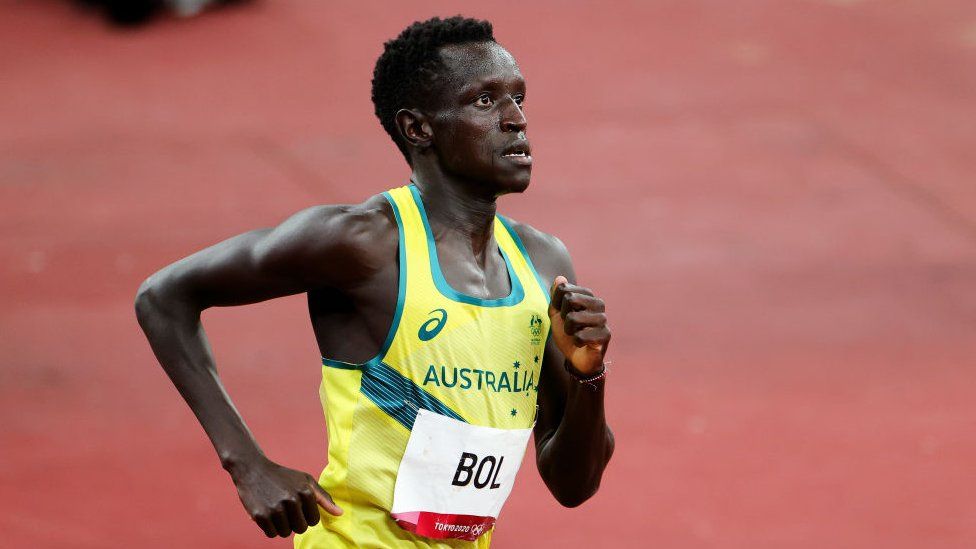Australian sporting darling Peter Bol has been cleared of blood doping six months after failing a drug test.
The 800m runner, who shot to national fame at the Tokyo Olympics, has been under a cloud since testing positive for synthetic EPO in January.
After a long investigation, Australia’s sporting watchdog has said fresh testing of the sample was negative.
Mr Bol’s case has revived doubts over EPO testing, prompting the World Anti-Doping Agency to review its practices.
“I have been exonerated. It was a false positive like I have said all along,” Mr Bol said in a statement on Tuesday, calling the news that Sports Integrity Australia (SIA) would no longer pursue his case “a dream come true”.
- The runner who lifted Australia
- Australian runner’s doping row may have global impact
The 29-year-old has previously said the allegations he was a drug cheat upended his life and shattered his athletic momentum.
EPO – or erythropoietin – is a naturally occurring hormone. But when injected in its synthetic form, EPO is a form of blood doping which has been employed by athletes – most famously Lance Armstrong – to aid stamina and recovery.
Mr Bol was informed he had failed an out-of-competition drug test for the hormone in January, and was provisionally suspended – unable to compete or train – pending the result of a back-up sample.
That process is supposed to remain private, but a week later his result was leaked to the media.
His back-up sample then returned an “atypical” result in February – meaning it was neither positive nor negative. Given the rarity of two samples not matching, his ban was removed, but investigations by SIA continued.
In a statement on Tuesday, SIA said “further analysis resulted in varying expert opinions” on Mr Bol’s initial sample, but it had ultimately been “reported as negative”.
As a result, the agency announced it had closed the case.
SIA – which has been criticised by Mr Bol’s team and the media for its handling of his matter – said it and Athletics Australia had at all times adhered to the required processes, and stressed that “athletes in Australia should have confidence in the anti-doping system”.
But the EPO test itself has also been criticised – with experts telling the BBC it is less precise than other drug tests.
In a statement, the World Anti-Doping Agency said it would conduct a review of its EPO procedures.
“While we have no reason to question the validity of the analytical method used for recombinant EPO, Wada will assess the current review process in light of the particularities of this case,” its statement said.
Mr Bol welcomed the review, saying “no one should ever experience what I have gone through this year”.
